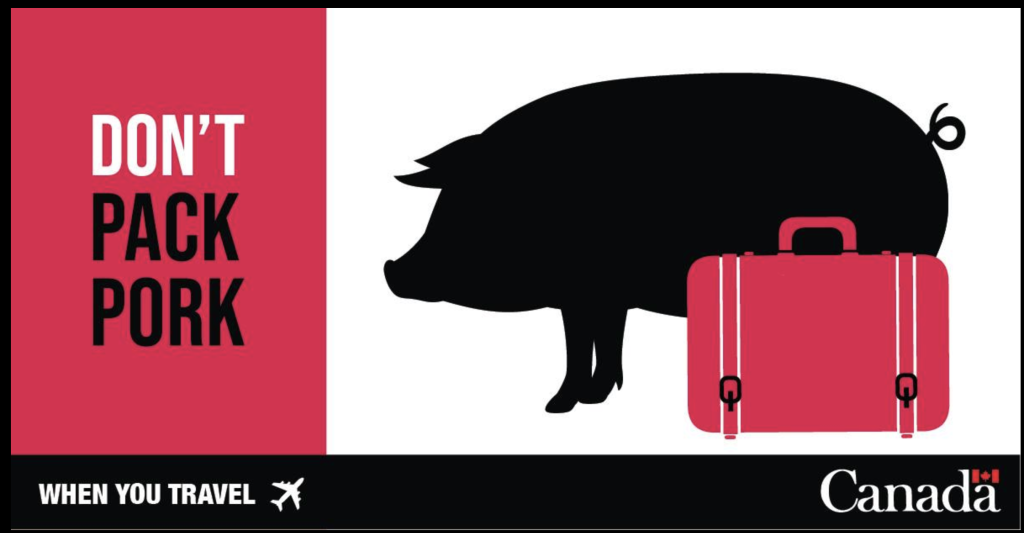
Erica Charlton, Director of Animal Health Canada’s Emergency Management Division, said the division’s primary focus is planning and preparedness for foreign animal diseases. This will be a key topic at Animal Health Canada’s Forum 2024, scheduled for October 8th and 9th in Ottawa, sharing updates on the division’s activities. Charlton emphasized the division’s focus on foreign animal disease planning and preparedness, particularly for African Swine Fever, Foot and Mouth Disease, and High Path Avian Influenza. She notes, “It’s been all hands on deck for African Swine Fever planning,” with five years of collaborative efforts forming a strong foundation. As the division develops and refines the disease preparedness plans, the goal is to create a flexible template for addressing various foreign animal diseases and expand the focus to natural disasters and climate change.Animal Health Canada operates as a collaborative body, bringing together key players to manage emergencies. “We work with federal agencies like the Canadian Food Inspection Agency (CFIA), Agriculture and Agri-Food Canada, and the Public Health Agency of Canada, as well as provincial ministries of agriculture, emergency management, and veterinary offices.” National livestock groups, including the Canadian Pork Council and the Canadian Cattle Association, also participate. Veterinary epidemiologists from CFIA, provinces, and private practice contribute expertise based on specific diseases under discussion.Animal Health Canada also collaborates with international trade officials, particularly from the Canadian Food Inspection Agency (CFIA), to address trade limitations related to animal diseases. Charlton explains, “We’re tapped into provincial and national networks and bring in subject matter experts depending on the issue, whether it’s disease, policy, or trade.” As the coordinator, Animal Health Canada manages a complex network involving government agencies, livestock organizations, and experts, ensuring the right specialists are involved in decision-making and policy discussions based on the topic at hand.She highlighted the urgency in addressing key issues, especially in the swine sector, where African Swine Fever (ASF) is a pressing concern. “ASF is a notifiable disease, meaning that if it’s detected, our foreign trading partners will stop the import of Canadian pork,” she explains. The economic impact would be devastating, with 70 per cent of Canada’s pork production exported. “We can’t consume the surplus if trade stops, leading to massive economic losses for farmers and the broader economy.” This highlights the importance of preparedness to protect trade and livelihoods.Charlton emphasized the high financial risk of ASF due to the potential loss of trade, with 70 per cent of Canadian pork exports at stake. “The priority is to control the disease quickly, regain trade status, and resume normal operations,” she explains, stressing the importance of rapid response. The severity of the situation brings stakeholders together, including political, animal health, and welfare interests. Campaigns like “Don’t Pack Pork” focus on educating the public about border security and reducing the risk of ASF introduction through international travel.She stressed the importance of educating travellers and veterinarians about the risks of transporting meat, particularly to prevent African Swine Fever (ASF). Campaigns like “Don’t Pack Pork” aim to raise awareness about the dangers of introducing animal diseases into Canada. The organization also focuses on training veterinarians to recognize symptoms of ASF, handle reporting requirements, and manage responses. “To improve preparedness, Animal Health Canada conducts mock exercises, testing protocols for disease detection and control, and continuously refining their plans based on the results of these exercises.”Charlton said Animal Health Canada’s emergency response system must be nimble, particularly in the first 72 hours of a disease outbreak like African Swine Fever. “You need to stop the spread as quickly as possible with the critical need for swift action, including tracing animals and isolating affected farms.”The organization has conducted mock exercises to refine their preparedness, from euthanizing pigs to handling Foot and Mouth Disease vaccinations. The critical priority remains ensuring adequate human resources for managing large-scale animal health emergencies.In addition to Charlton’s update at the Forum, there will also be a panel discussion on and about the ASF EMB model. Speakers include: Dr. Egan Brockhoff, Veterinary Counselor – Canadian Pork Council; Cindy Trask, Vice President, African Swine Fever Planning and Preparedness, Maple Leaf Foods and Colleen Barnes, past Vice President Policy and Programs, Canadian Food Inspection AgencyCharlton said that although the current focus is disease management, other emergencies will also be added later.For more information on Animal Health Canada’s Forum 2024 industry, visit animalhealthcanada.ca •
— By Harry Siemens





